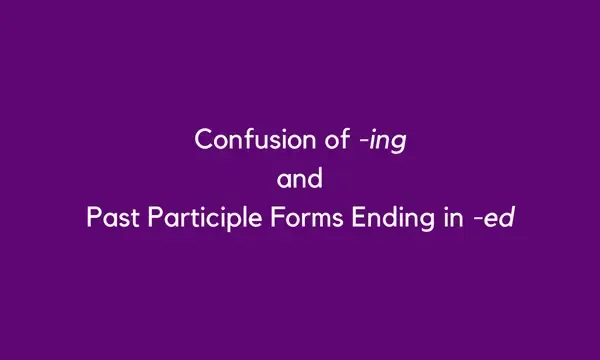Confusion of -ing and Past Participle Forms Ending in -ed
Have you ever found yourself in an awkward situation where you unintentionally insulted someone because of a simple grammatical mix-up? The confusion between -ing and past participle forms ending in -ed can lead to unintended meanings and potential embarrassment.
Introduction:
In the intricate world of English grammar, the distinction between -ing and past participle forms ending in -ed can be a source of confusion for many language learners and even native speakers. These forms, while seemingly similar, carry vastly different meanings, and their misuse can result in unintended and sometimes humorous consequences. (Keyword: Confusion of -ing and Past Participle Forms Ending in -ed)
Confusion of -ing and Past Participle Forms Ending in -ed
Be aware that both the -ing form and the past participle -ed form of some transitive verbs can function as adjectives. However, each form has a different meaning.
- The movie was amusing. (The -ing form of the verb amuse is used here as an adjective with active meaning.)
- The audience was amused. (The past participle form of the verb amuse is used here as an adjective with passive meaning.)
Warning:
If you do not use the correct form, the sentence may be grammatically correct but you will convey the wrong idea. The writer of the following sentence intended to say that the party was not at all interesting or exciting for his girlfriend.
- My girlfriend was boring at the party.
However, because he mistakenly used boring in place of bored, he implied that nobody found his girlfriend interesting - a comment that obviously did not please her!
Here is a partial list of some adjectives that are easily confused.
|
Amazing |
Amazed |
|
Annoying |
Annoyed |
|
Disappointing |
Disappointed |
|
Embarrassing |
Embarrassed |
|
Exciting |
Excited |
|
Interesting |
Interested |
|
Satisfying |
Satisfied |

